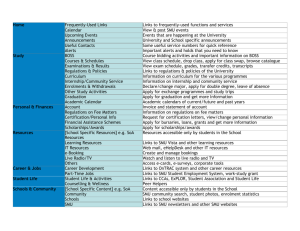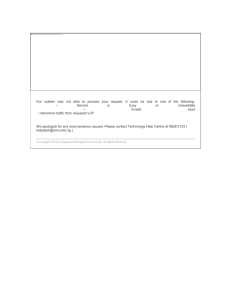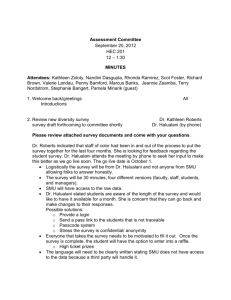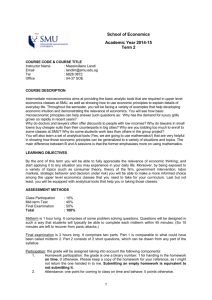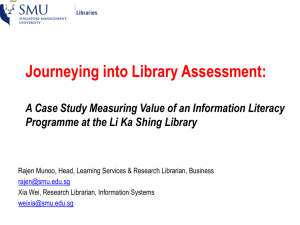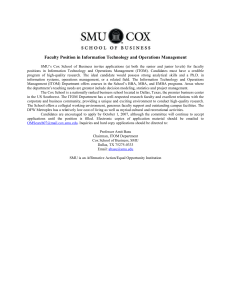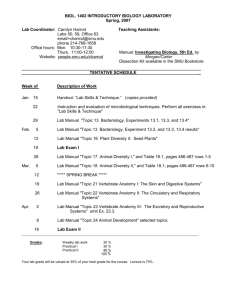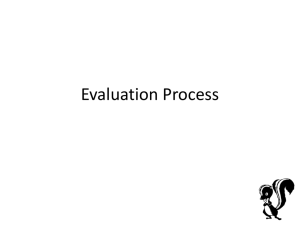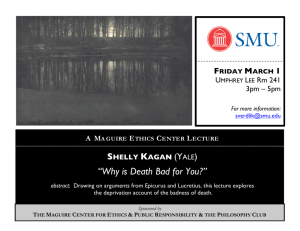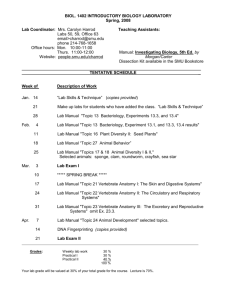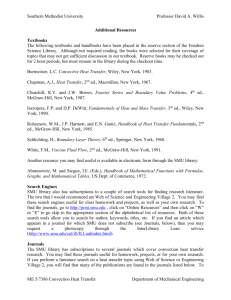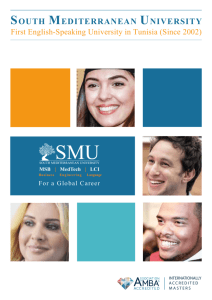Collaborating with Faculty in Information Literacy Classes Works!
advertisement
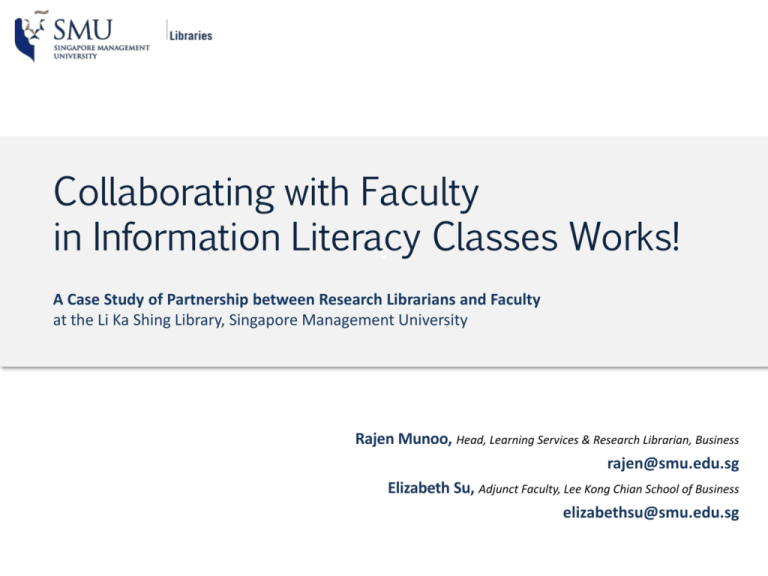
Collaborating with Faculty in Information Literacy Classes Works! v A Case Study of Partnership between Research Librarians and Faculty at the Li Ka Shing Library, Singapore Management University Rajen Munoo, Head, Learning Services & Research Librarian, Business rajen@smu.edu.sg Elizabeth Su, Adjunct Faculty, Lee Kong Chian School of Business elizabethsu@smu.edu.sg The Research Guide as Co-Creation Business Government & Society Go to > http://researchguides.smu.edu.sg/mgmt003_esu Introducing the Research Guide Media Rich Content Value for Faculty An organic, ‘living’ entity Helps guide students through the learning process Reinforces the content the lecturer wants students to read or watch Is engaging because of its audio-visual component Is sustainable, ‘refreshable’ and can be as deep or extensive as one wishes Value for Faculty Can be re-used – again and again Can be updated easily Can be matched with weekly teaching plan Can be used as a resource for student assignments Can be used to create a positive learning environment for students Can be a shared resource for faculty Value for Students Acts as a guide through the learning process Promotes independent but guided learning Elaborates on assignments and readings given in the course outline/plan Makes it easier for students to conduct research and further reading Directs students to credible sites where they can dig deeper into a subject Value in Data Pause.Rewind.Play “Whether librarians teach outside the library or not, we need to learn to teach. We should know about learning theories, including multiple intelligences, and how to construct a class so that we reach learners of all abilities…Too many of us focus on what we think is important and not on what students need. We cram too much information into 50- or 80-minute sessions and don't allow time for students to reflect and retain the information.” (Partello, 2005:115) • • • Partello, Peggie. (2005). Librarians in the classroom. Reference Librarian, 43 (89/90). Retrieved 15 May 2014 from doi: 10.1300/J120v43n89 08 Oakleaf, M. (2011). Are They Learning? Are We? Learning Outcomes and the Academic Library. The Library Quarterly, 81(1) 61-82 Iannuzzi, P. (1999). We Are Teaching, But Are They Learning: Accountability, Productivity, and Assessment. Journal Of Academic Librarianship, 25(4), 304 Journeying into Assessment • SMU-wide initiative: business improvement and culture of excellence > Office of Business Improvement (OBI) > Lean Six Sigma • Library’s Culture of Assessment > Measurement, Value and Impact • 2013 > Position paper > UG Curriculum Review Committee > Raise Awareness > Need for IL in the curriculum. • 2014 > Library’s IL Assessment Taskforce set up • The objective of the pilot task force is to design, develop and implement assessment approaches, tools and skills for Research Librarians or anyone interested in Information Literacy in SMU Library. • Worked with SMU’s Centre for Teaching Excellence to equip staff with skills needed to undertake IL assessment • Conversations with key stakeholders Students: An Ethnographic Study • Majority of new students coming to SMU are from JCs (average 75.5%), but in the last year there has been a slight increase in the number of students coming from polys (16% [2011/12 cohort] to 18% [2012/13 cohort]) • 99% had libraries; public library was alternative • Average use was 2-3 times a week but after coming to SMU those who indicated rarely (17.3%; 18.9%) used it more daily (22.5%; 22.9%) • Average 77% did not have any training in the use of the library • Those that did… Before Arriving at SMU 80 73.3 71.9 70 63.9 • Schools are offering some form of training 65.2 60 53.3 52.1 • Traditional areas 50 % 40 2011-12 2012-13 28.1 30 24.2 20 10 0 Tour of the Library Searching electronic resources Searching Google Searching the library catalogue • Students coming to SMU have some form of user education • School libraries recognise that students use Google and hence teach students how to search it. After Completing a Term 100 90 89.4 85.8 80 70 60 % 49.3 50 49.1 2011-12 43.8 40.6 2012-13 40 30 20 10 5.3 1.8 2 2.4 0 LibQuest Presentation by Research Librarian Academic Writing Specialised Training Other • LibQuest (intake approx. 1,900) during matriculation ranked highest (89.4%; 85.8% ) • Increase in the number of In class presentations (43.8%; 49.3%) • Academic Writing (approx. 1,500 students) Embedded in eLearn Parting Thoughts: 5C’s • C _ m _ un _ cat _ [the value of the Library] • C _ n _ e _ sa _ io _ [about curriculum and content] • _on _ e _ t [with students] • Cre _ t _ [information products] • Ce _ eb _ a _ e [our professionalism] Thank You Rajen & Elizabeth Coming Soon… • Mark your date: Thursday 29th January 2015 Workshop [AM] • Theme: Demystifying Measurement, Assessment, Impact and Value of Information Literacy and Instructional Programmes Seminar [PM] • Theme: We are teaching but are they learning?: Demonstrating Value of IL and Instruction • More Information Soon…
